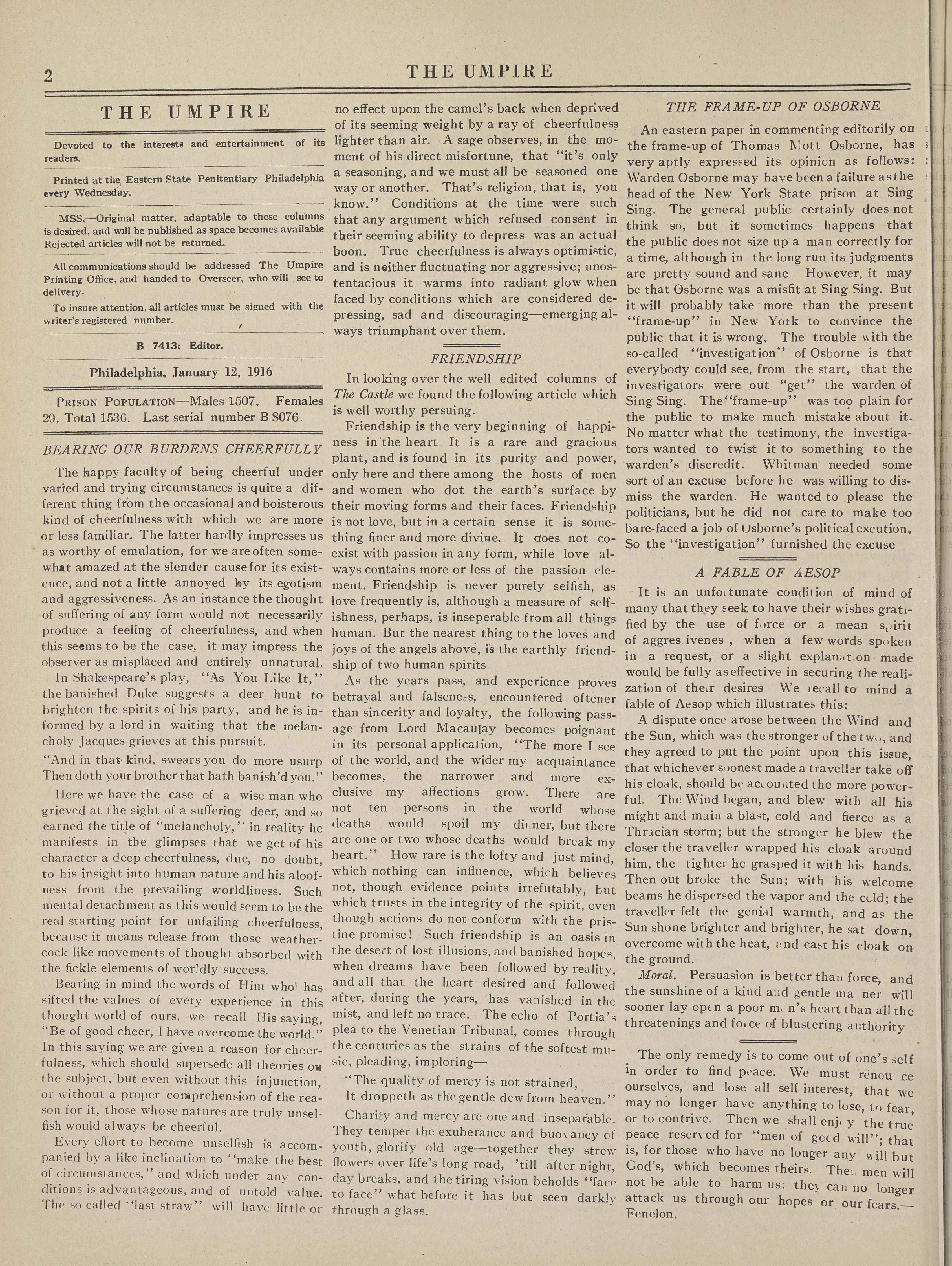Devoted to the Interests and Entertainment of its Readers
Printing in Prisons
Designed in Memory of Incarcerated Printers & Typesetters
Established 2023
Bearing Our Burdens Cheerfully
- Author: Unknown
- Editor: B-7413
- Newspaper: The Umpire volume 5
- Page Number:
- Date: 1 12 1916
- Tags:
BEARING OUR BURDENS CHEERFULLY The happy faculty of being cheerful under varied and trying circumstances is quite a different thing from the occasional and boisterous kind of cheerfulness with which we are more or less familiar. The latter hardly impresses us as worthy of emulation, for we are often somewhat amazed at the slender cause for its existence, and not a little annoyed by its egotism and aggressiveness. As an instance the thought of suffering of any form would not necessarily produce a feeling of cheerfulness, and when this seems to be the case, it may impress the observer as misplaced and entirely unnatural. In Shakespeare's play, "As You Like It," the banished. Duke suggests a deer hunt to brighten the spirits of his party, and he is informed by a lord in waiting that the melancholy Jacques grieves at this pursuit. "And in that kind, swears you do more usurp Then doth your brother that hath banish'd you." Here we have the case of a wise man who grieved at the sight of a suffering deer, and so earned the title of "melancholy," in reality he manifests in the glimpses that we get of his character a deep cheerfulness, due, no doubt, to his insight into human nature and his aloofness from the prevailing worldliness. Such mental detachment as this would seem to be the real starting point for unfailing cheerfulness, because it means release from those weathercock like movements of thought absorbed with the fickle elements of worldly success. Bearing in mind the words of Him who has sifted the values of every experience in this thought world of ours, we recall His saying, "Be of good cheer, I have overcome the world." In this saying we are given a reason for cheerfulness, which should supersede all theories on the subject, but even without this injunction, or without a proper comprehension of the reason for it, those whose natures are truly unselfish would always be cheerful. Every effort to become unselfish is accompanied by a like inclination to "make the best of circumstances," and which under any conditions is advantageous, and of untold value. The so-called "last straw" will have little or no effect upon the camel's back when deprived of its seeming weight by a ray of cheerfulness lighter than air. A sage observes, in the moment of his direct misfortune, that "it's only a seasoning, and we must all be seasoned one way or another. That's religion, that is, you know." Conditions at the time were such that any argument which refused consent in their seeming ability to depress was an actual boon. True cheerfulness is always optimistic, and is neither fluctuating nor aggressive; unostentatious it warms into radiant glow when faced by conditions which are considered depressing, sad and discouraging—emerging always triumphant over them.

